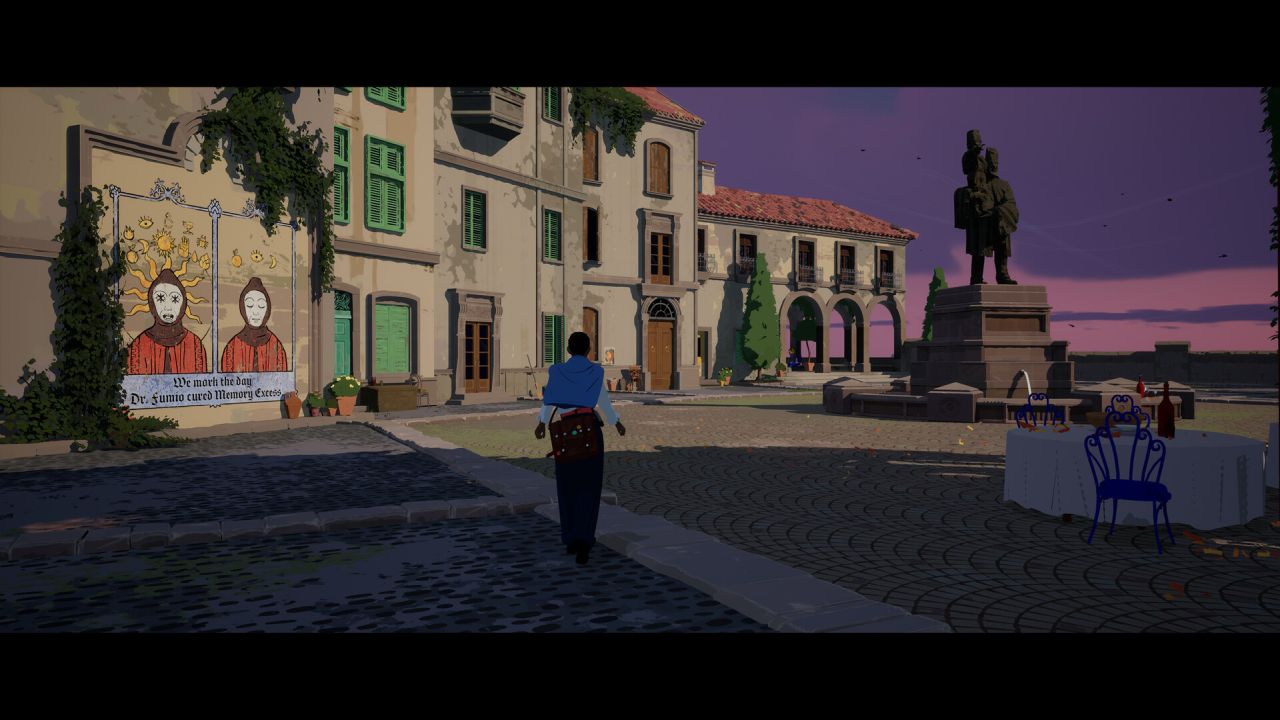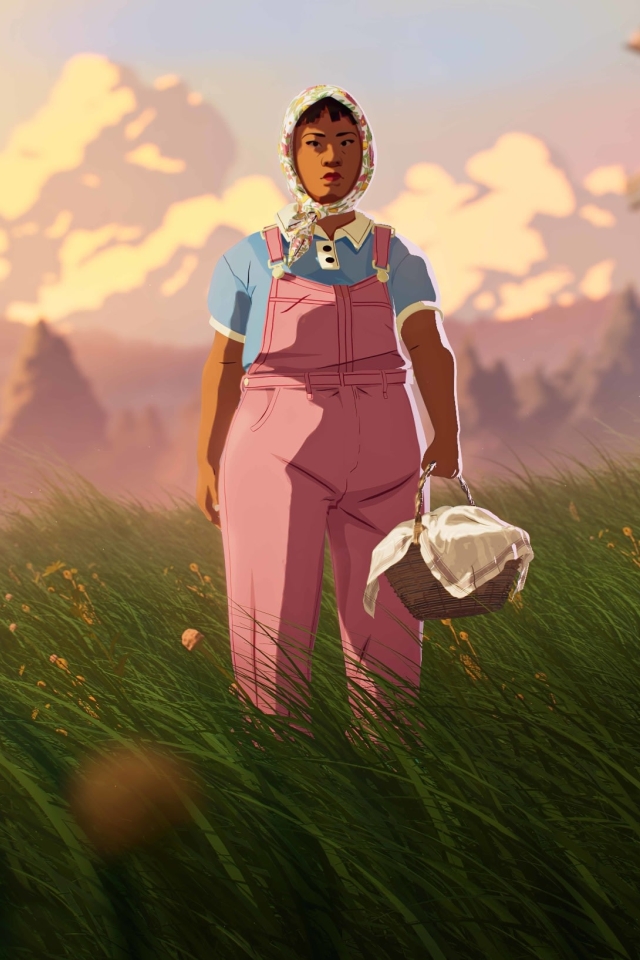
It does have a definitive ending, and Estelle's journey matters most once you see it and understand it all, allowing the game's various themes to come to shore not like a monsoon, but like a delicate wave reaching up the beach. Season is tranquil at all times, and given Estelle's often wiser-than-her-years thoughts on her experience, the delicate but impactful music, and incredible pastel comic book visual style, it's a game that is best enjoyed by players who would rather sit and reflect on what they've seen, heard, or touched rather than those who might play it like a game to beat. Her entire journey will take anywhere from 6-12 hours, with that variance largely owing to how much you let yourself soak in the various scenes. The idea is that, by the end of Estelle's journey, the scrapbook will serve as a detailed moment frozen in time, left to pass onto future generations so they can understand their own would-be ambiguous history. Capture enough of these "keepsakes" of any location, and you'll unlock additional drawings, stamps, and other musings that can be reshaped and resized to further decorate your scrapbook. Capturing some images and audio brings out Estelle's inner thoughts, which often become writings you can jot down, too. The same is true of capturing audio-you just point and shoot-and these audio clips become mementos you can include in your travel log. Simple camera tools like zoom, focus, and color filters allow you to frame and present a moment just as you intend, and, if you like it enough, you can include it in your scrapbook. It's all equally valid and other than a few puzzle-like sections where you'll need to find specific items, there are no wrong answers. You can capture photos of cows grazing after their human companions have moved out, focus on the juxtaposition of industry and nature on the eve of the dam collapse, or create a portrait of a grieving widow as she packs up her late husband's best suit. In your scrapbook, each named location gets its own dedicated pages as you discover them, and what you put on those pages is up to you. You'll find the world casually split into sections: a cemetery, a temple, a path to a farm house, and so on. Meeting each denizen of Tieng Valley allows Estelle to ponder her own place in the world.īiking through the wide-open valley after a linear introduction, you can stop anywhere and take pictures of anything. These, and other themes, are delivered through thoughtful monologues and conversations that allow for players to insert themselves in the story. Equipped with a camera, audio recorder, scrapbook, and bicycle, Estelle treks into the valley to interview the last remaining locals, capture the state of the vista in its final days, and reflect on things like memory, community, and grief. For the people of Tieng Valley, a lush farming village that's largely been evacuated due to an imminent dam collapse, the beginning of the season may even be a matter of life and death.

Seasons seem to be more defined by the particular circumstances of a society-the breakout of war or widespread sleep, for example-more than they are snow days or fallen foliage.įor Estelle, it's important to document the outgoing season as all will be lost when the new season begins, even as no one seems sure what that season will usher in itself. The game is deliberately unclear regarding exactly why, when, or how seasons emerge, and it seems at least sometimes they are influenced by people rather than natural things that happen to those people. In this unnamed world, which is like ours but also definitely is not ours, a new season doesn't mean just a change in temperature it means a total rebirth of the state of things. You play as Estelle, a young woman who sets off to observe and record a part of her world on the precipice of a new season.

Excitingly, Season doesn't feel like such a game, as its approach to gameplay and story are fresh and largely disinterested in giving you boxes to check. Sometimes the language of open-world games is obvious, especially if you've played a few of them. Season: A letter to the future requires its own special circumstances-a calm, peaceful environment-and if you can provide that, you'll find in it a special stillness, a pensive story, and a memoir from a fantasy land worth experiencing. Horror games beg for the lights off and headphones on, while co-op games are often more enjoyable when played together on a couch rather than online. Some games demand a specific kind of real-life setting to really be absorbed.


 0 kommentar(er)
0 kommentar(er)
